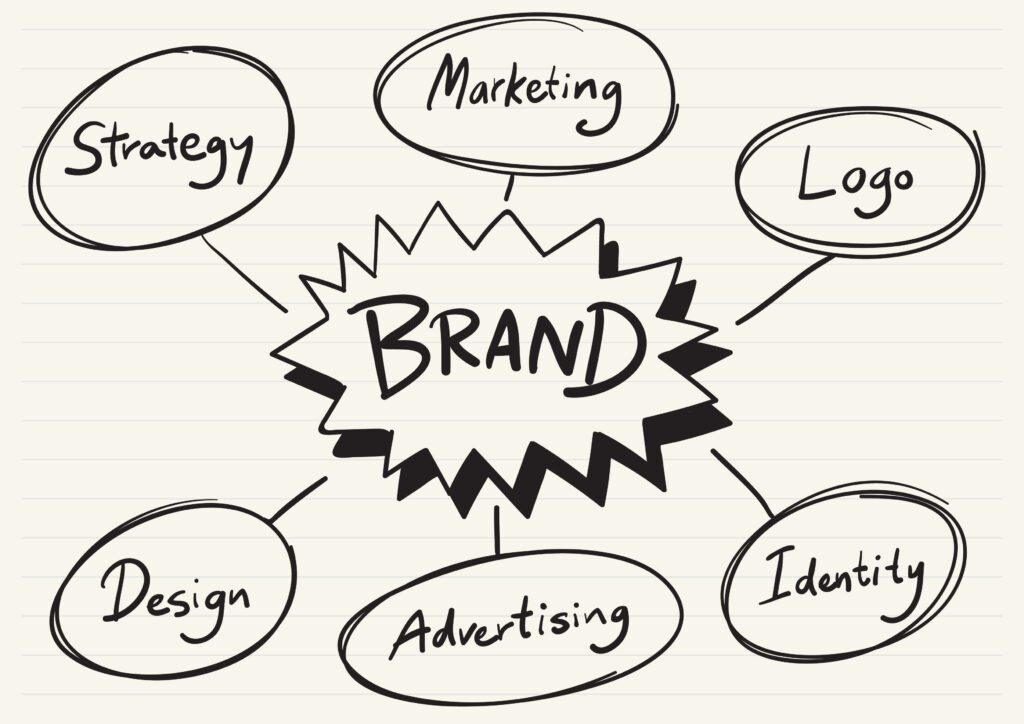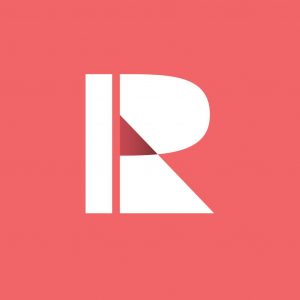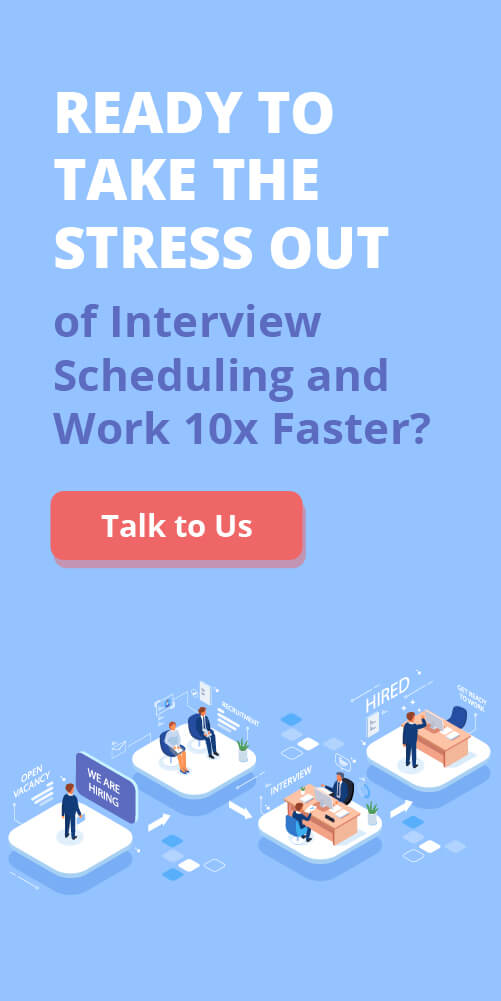Imagine arriving at a packed college career fair, handing out branded swag while students swipe on smartphones, half-listening.
For campus recruiters, that scene is about to feel very different. Today’s students wield AI tools like ChatGPT to ask questions, research companies, polish resumes, and even apply for jobs en masse.

The Recruitment Landscape in 2025 and Onward
Recruiters already face a tidal wave of AI-generated applications – one Bot creator claimed it applied to 1,000 jobs and scored 50 interviews overnight. At the same time, top employers are cutting traditional entry-level programs: big tech firms now hire 50% fewer new graduates than in 2022.
In 2025 and onwards, AI – especially large language models (LLMs) are finding themselves becoming recruiters’ assistants. HR leaders report that 86% of executives plan to replace routine entry-level tasks with AI (and one in six already have).
The upside? Campus recruiters will no longer need to rely on volume or resume buzzwords to find great candidates. With the recruiting landscape evolving fast, Rakuna set out to answer a big question:
How will the campus recruiting job change in the era of AI adoption — and how can we adapt?
In this article, we’ll explore what’s shifting, what still matters, and what your team can do to stay ahead.

In practical terms, every aspect of campus recruiting is being turbocharged or undercut by AI.
- Automated chatbots can schedule interviews around the clock. One health system’s “Mia” chatbot helped Houston Methodist boost hires for hard-to-fill roles by 30% and schedule 88% of interviews on the same day candidates applied.
- Applicant Tracking Systems and AI screening sift through candidates before a human ever sees a resume. In fact, one report found 99% of Fortune 500 companies use AI to filter applicants.
- Meanwhile, generative AI enables students to “auto-apply” to dozens of jobs with customized resumes and cover letters. A Reddit user built a bot that applied to 1,000 jobs overnight and got 50 interviews.
- Even formal interviews can be AI-driven: some companies now use voice- or video-bot screeners without telling candidates.
Against this backdrop, traditional tactics – a slick campus booth or a corporate logo hoodie – no longer suffice. When every company brands itself “tech-savvy” or “mission-driven,” recruiters must grapple with noise to find real interest.
The core challenge is clear:
AI is multiplying both candidates and complexity. Recruiters face an avalanche of polished resumes (often refined by AI) and automated applicant engagement, yet only a fraction represent genuine interest or fit. As ThriveMap notes, most new applications will come from people who didn’t even knowingly apply, generated by AI matching profiles with roles. The recruiter’s role shifts from sorting paper to spotting intent: Who among these AI-crafted candidates truly wants to work here?
Cutting Through AI-Generated Noise

Recruiters today must cut through the AI-generated clutter to find real talent. One recruiter’s nightmare scenario is hundreds of “perfect” resumes, none with a soul. The vast majority may be bots firing off applications, making genuine candidates harder to spot.
Your team might find traditional screening methods like
“We have to filter by keyword,” or “We check for AI fingerprints?” start to be ineffective.
But technology providers know this too. Some ATS claim they can detect AI-written applications, but as ThriveMap’s founder in the above case warns, that may miss the point.
Instead of banning AI content, the smarter strategy is to force authenticity through the recruitment process.
How can a recruiting team push for talent authenticity through the process?
Try Skill-first and Task-based Evaluation

Instead of a standard resume, recruiters might ask candidates to complete a realistic job preview or project. ThriveMap suggests immersive pre-hire assessments that simulate on-the-job tasks – a way to see if a candidate really can code an app or analyze data, rather than relying on buzzwords & AI Support.
HackerEarth notes that 81% of employers now prefer skills-based hiring over credentials (up from 56% in 2022).
💡 In practice, recruiters might give coding challenges or portfolio reviews. This approach naturally weeds out pure AI noise because a bot-generated resume can’t deliver on a real assignment.
Don’t Forget Personalized & Hands-on Interaction With Talent

Personal interaction can also become a filter. That personal touch – even a 15-minute video chat or an office-hours Q&A – can reveal true engagement. If a candidate can only recite generic lines (perhaps from ChatGPT), they’ll quickly expose themselves.
💡 Consider adding “passion checks” to your screening questions: short probes like “What project excites you at our company, and why?” that encourage candidates to speak from the heart.
Recruiters should also lean into candidate-driven branding. Instead of blasting generic campus emails, consider inviting prospects to interactive events: project-focused hackathons, roundtables with team members, or even virtual reality tours of the lab. These touchpoints serve a dual purpose: they intrigue sincere students and discourage the bots, while giving recruiters a chance to see who shows up and participates.
💡 According to Radancy, candidate experience is itself part of a company’s brand – and 95% of applicants with a positive interview experience say they would consider reapplying or recommending the company.
Does Traditional Branding Still Matter?

With AI swelling the applicant pool, one might wonder if employer branding even matters anymore. Has the AI era rendered authentic branding irrelevant? The evidence says no – if anything, brand now matters more than ever.
Today’s students and new grads are savvy; they often start their job search with an online persona of a company, not just a job listing. In fact, according to LinkedIn Employer Brand Statistics, 75% of job seekers world-wide consider an employer’s reputation or brand before applying.
If your company’s website touts one thing but Glassdoor reviews say another, candidates will notice.
Instead of making branding generic, companies must build credibility. That means backing up slogans with substance. Great Place to Work research finds that today’s candidates prioritize purpose, flexibility, meaningful development, and workplaces where they feel valued and respected.
💡So recruiters should highlight specifics:
- You recruit for a tech firm? Showcase real projects or cutting-edge labs;
- For a hospital system, you can showcase & emphasize patient impact and staff support.
- What about Finance & Professional Services? Share employee stories that explain how junior hires have grown into impactful roles or influenced change.
- For Manufacturing, Energy, & Engineering, you can talk about on-site mentorship, apprenticeships, and technical learning paths. These industries often appeal to students who want hands-on skill-building.
Even HR tech can assist branding. AI tools can personalize outreach: targeting messages based on a student’s interests or location, rather than a one-size-fits-all email.
Some companies are pioneering branded chatbots on career pages that answer FAQs about culture, provided they’re transparent and helpful. But always loop in real conversation quickly: use AI to schedule a call with a recruiter, not to replace it.

At Rakuna, our LLM-powered AI helps generate hundreds of initial email ideas and templates to spark outreach campaigns, giving recruiters a strong starting point. But it’s our users who add the personal touch that truly connects with top talent.
In short, genuine employer branding can’t be automated away. It must evolve to leverage AI for efficiency, while ensuring every touchpoint feels real.
What Candidates Value in 2025 and Onwards?

So what will make a campus hire feel, “This is a great place to work”?
Again, it comes down to authenticity and alignment with candidate values, just viewed through a 2025 lens. Surveys and culture experts converge on key themes for Gen Z and young talent: purpose, trust, flexibility, and growth.
Trust & Purpose
Remember the Great Place to Work report? Gen Z talent and following generations of candidates “want purpose, flexibility, meaningful development, and workplaces where they feel valued and respected.”
In practice, this means: companies should clearly articulate their mission (and live it) – a brand promise only matters if everyday employees actually experience it. High-trust cultures win: job seekers can sniff out tone-deaf messaging, and trust is now the secret ingredient for AI success in the workplace.
If employees distrust the company’s use of AI or its ethics, no amount of branding will convince them.
Flexibility
According to Microsoft’s Work Trend Index Annual Report, which surveyed 30,000 individuals across 31 countries, more than 70% of employees expressed a strong preference for their employers to maintain flexible remote work arrangements.
Campus recruiting will bring these expectations into interviews: Student candidates are used to juggling study, internships, and side projects. A “great” job in 2025 means an employer who offers autonomy, flexible hours, hybrid work, or outcome-based goals.
Growth
Career growth and upskilling weigh heavily, especially because AI is reshuffling roles. With “1 billion people needing reskilling by 2030” according to the World Economic Forum, candidates look for companies that invest in learning. Mention formal training programs, hackathons, or mentorship for new grads. That speaks directly to Gen Z’s concern about obsolescence. No matter what industry you are recruiting for, highlighting opportunities to develop AI skills or earn certifications can turn a generic job offer into an attractive career path.
In sum, a “great place to work” in 2025 is one that the talent itself can trust to deliver on promises. When campus candidates see consistent evidence – from mission-led projects to positive former-employee reviews – they feel the difference between a hollow brand and an authentic one.
Strategic Moves for Savvy Campus Recruiters (2025 and Beyond)

- Use AI as a tool, not a replacement.
Don’t buy into the “AI vs. humans” narrative. The best hires come from trained people using smart tools. AI alone won’t solve bad processes or poor candidate experience. - Humanize early interactions.
Automate the basics (like interview scheduling), but escalate real interest to humans. This is the core tenet Rakuna follows when making our recruitment software solution – Our tool, AI or no AI, is used to free up recruiters from administrative tasks to connect with talent personally - Focus on skills, not just resumes.
Replace generic resume screens with creative assignments. For technical roles, host coding challenges or virtual hackathons (as many tech recruiters now do) so candidates demonstrate ability. For all fields, consider an interactive assessment or case study as part of the campus hiring funnel - Let your people tell your story.
.Let employees be your messengers. Feature junior hires or interns in social media takeovers and testimonials – showing a real new grad’s journey is far more compelling than any corporate statement. Be transparent about your culture by sharing struggles as well as strengths. - Personalize everything.
Use your Recruiting CRM smartly. Tag and segment campus prospects by interests or skills, then send tailored content. Many companies find that personalized emails or AI-curated role suggestions (based on a student’s LinkedIn or GitHub) increase engagement. If someone loves green tech, don’t send generic job alerts — invite them to a sustainability webinar. - Partner with universities.
The LinkedIn “Vanishing Recruiter” piece warns that without entry-level hiring, the pipeline closes. To avoid this, create alternative entry paths: sponsor student projects, offer apprenticeships, or set up campus career center internships (as some leaders suggest). Co-host skill-building workshops or credit-bearing internships in collaboration with universities. Not only does this maintain your on-campus presence, it helps train the recruiters of tomorrow. - Train recruiters to be AI-fluent and human-first.
Make sure campus recruiters are AI-fluent but also people-centric. Invest in developing their soft skills: how to ask probing questions, read body language on video calls, and understand student concerns. As one LinkedIn talent lead put it, we need “recruiters who are AI-fluent, yes, but also human-first” – able to sense candidate hesitation or motivation in ways an algorithm cannot.
In practice, this means shadowing senior interviewers and sharing feedback. Even if AI handles much of the legwork, seasoned recruiters will identify cultural fit and potential in ways machines won’t.
🟦 Bottom line: Modern recruiters blend smart tech, human empathy, and continuous learning. That’s the real competitive edge in AI-powered hiring.
To Wrap up…
Campus recruitment in 2025 will be nothing like the old days of tie-dye posters and mass resume drops. AI has certainly upended the game – applicant pools have exploded with bot-crafted profiles.
But this does not spell the end of genuine recruiting. In fact, the human element will become more precious. Candidates will still choose workplaces that match their values and aspirations – and they can spot authenticity (or its absence) easily.
The best talent acquisition teams will respond by combining the agility of AI with the heart of real human recruiting. Use technology to streamline outreach and personalize touches, but keep the focus on meaningful conversations and experiences. Share your true employer story – what makes your campus program unique, what graduates say about life on the job, how you’ve lived your values.

Team Rakuna
The Rakuna Team comprises a diverse group of professionals hailing from various corners of the world.
With a passion to enable organizations to hire their next waves of talents, we are dedicated to help organizations stay updated on important recruiting technology and industry best practices.

